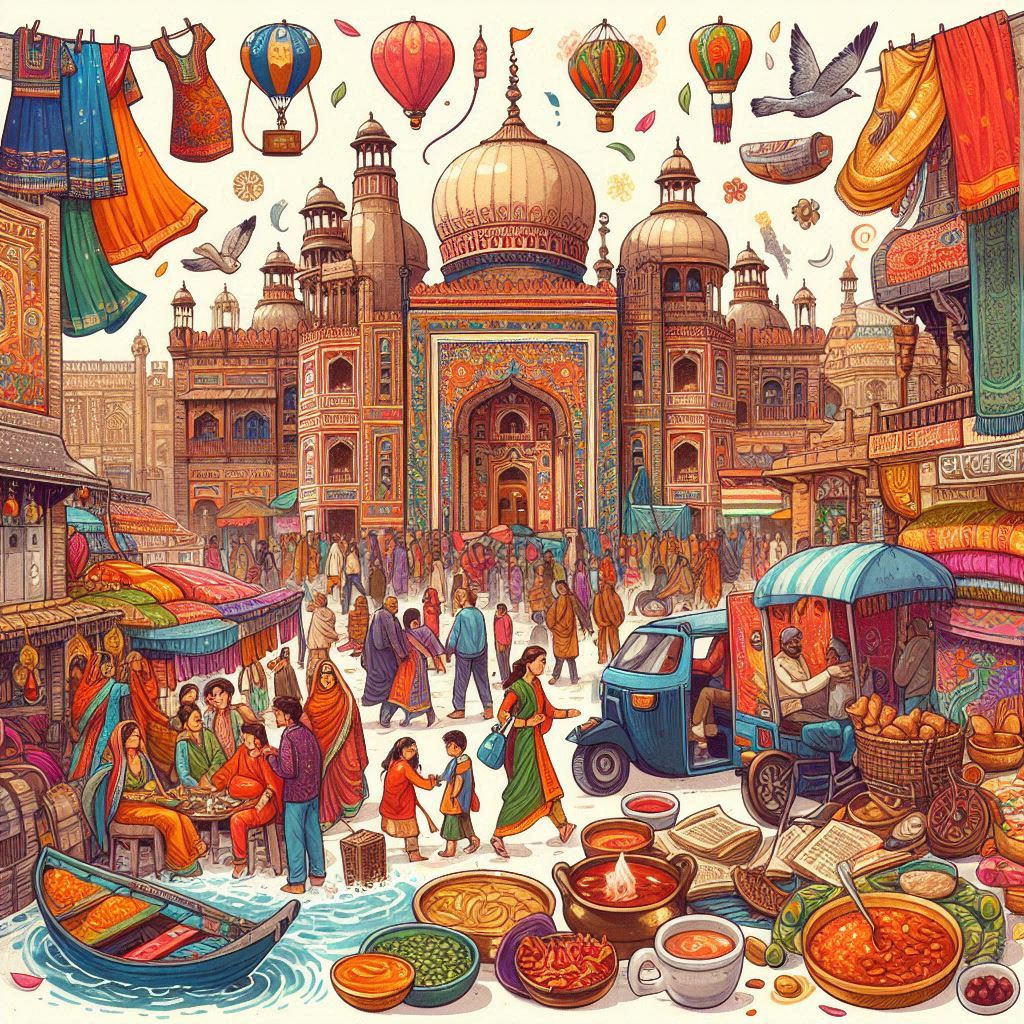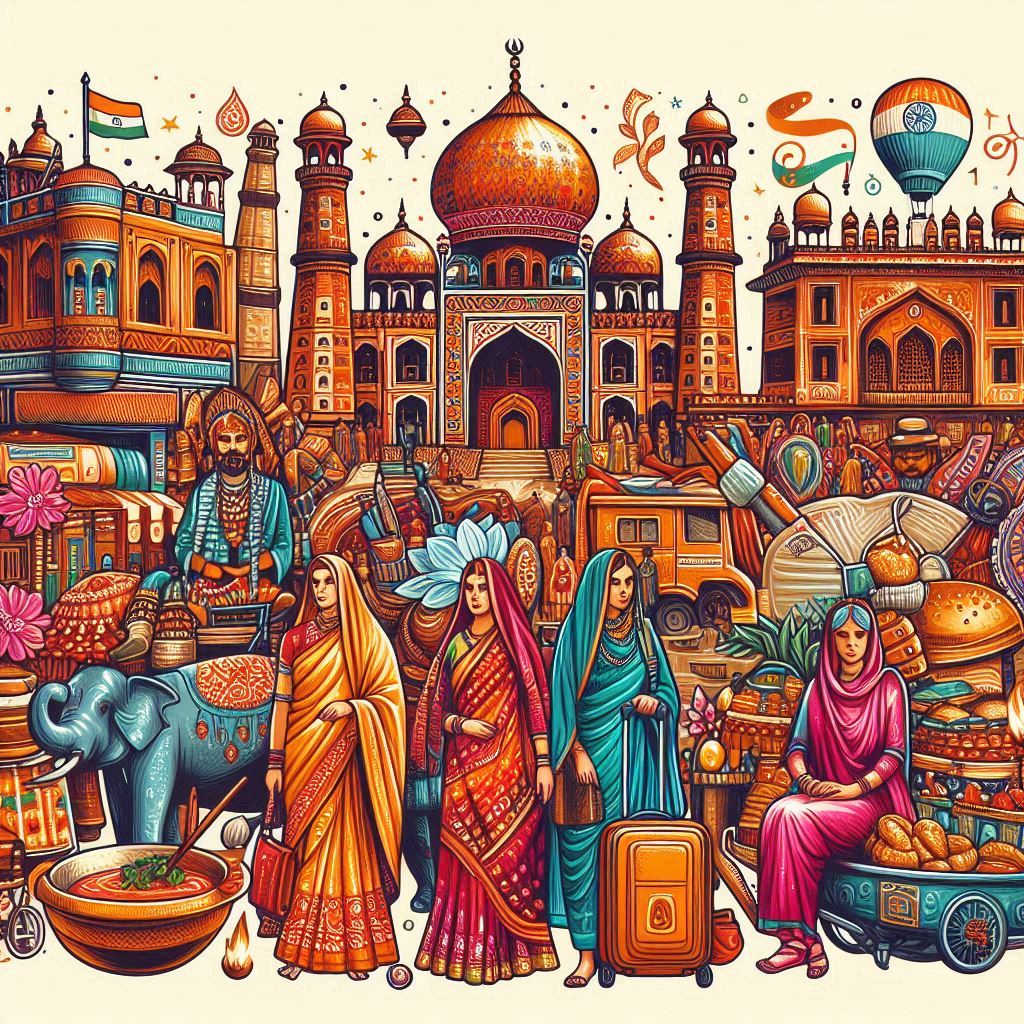去印度旅行需要注意那些事情?
去印度旅行是一個令人興奮且充滿文化衝擊的體驗。然而,這個國家也有一些特殊的挑戰和注意事項。以下是一些重要的方面需要特別注意,包括治安、衛生、飲食、水、女性的安全和交通。
治安會依照不同地區有所不同。大城市和主要旅遊地點如德里、孟買、果阿和齋浦爾等地的治安相對較好,但在某些偏遠地區和夜晚時分需要特別小心。小偷和扒手在擁擠的市場、公共交通和旅遊景點很常見,應該隨時保管好貴重物品。建議不要在不熟悉的區域單獨行走,尤其是夜晚。
衛生條件與許多西方國家有較大差異。旅客應該注意飲食衛生,選擇乾淨的餐館和食物。隨身攜帶濕紙巾和洗手液,以便在吃飯前後保持手部清潔。建議接種適當的疫苗,如甲型肝炎、乙型肝炎、傷寒和霍亂等。因為牛被視為神聖的動物,路邊常可以看到牛糞跟許多垃圾。很多地方都有臭味,他們習慣用手抓著吃飯,去之前把叉子或筷子先準備好。
當地食物多樣且味道濃郁,但初次接觸印度食物的旅行者可能會對香料和油脂含量不適應。建議逐步嘗試印度食物,避免一次性攝入過多香料。最好選擇熟食,避免吃生菜或未煮熟的食物。小吃和街頭食品要謹慎選擇,只在乾淨衛生的攤位購買。
自來水通常不適合直接飲用。旅行者應該飲用瓶裝水,並確保瓶蓋密封完好。刷牙和洗蔬菜水果也應使用瓶裝水或經過煮沸的水。避免使用冰塊,因為它們可能是用不潔淨的水製成的。
雖然大多數地方對女性旅行者相對安全,但某些地區和情況下仍然存在風險。建議穿著保守,不要單獨在偏僻或陌生的地方逗留或住宿。晚上最好結伴而行或選擇可信賴的交通工具,如預訂出租車或使用知名的叫車應用。應該保持警惕,避免接受陌生人的邀請或飲品。印度常常發生女性被強暴事件,外國人也不例外,晚上盡量不要出門。
交通狀況比較混亂,尤其是在大城市。道路擁擠,交通規則執行不嚴,行人和車輛混行,這對於不熟悉當地交通狀況的旅行者來說可能會很危險。建議選擇可靠的交通方式,如預訂出租車或使用叫車應用。搭乘火車旅行是印度的一大特色,但火車站通常非常擁擠,行李和個人物品要保管好,可以訂VIP車廂。城市內的三輪車(嘟嘟車)和計程車要事先商定好價格,以避免被宰客。
其他注意事項
語言:印度的官方語言是印地語和英語,大多數旅遊地點的服務人員會說英語。學會一些基本的印地語詞彙可以幫助你更好地與當地人交流。
禮儀和文化:尊重當地的風俗習慣和宗教信仰。參觀宗教場所時應穿著得體,遵守規定。
氣候:氣候多樣,旅行前應該查詢當地的天氣情況,準備合適的服裝和防曬用品。夏天相當炎熱,常發生熱死人的狀況。
貨幣和支付:印度的主要貨幣是印度盧比,建議隨身攜帶少量現金。大多數城市的酒店和餐館接受信用卡支付,但在偏遠地區現金仍是主要支付方式。
整體而言,印度是一個充滿魅力的旅遊目的地,但也需要旅行者做足準備和保持警惕。通過注意上述各方面的問題,可以大大提高旅行的安全性和愉快程度。
Traveling to India is an exciting and culturally enriching experience. However, this country also presents unique challenges and precautions. Here are some important aspects to pay special attention to, including security, hygiene, food, water, women's safety, and transportation.
Security
Security varies across different regions in India. Major cities and popular tourist destinations like Delhi, Mumbai, Goa, and Jaipur have relatively better security, but extra caution is needed in some remote areas and during nighttime. Pickpockets and thieves are common in crowded markets, public transport, and tourist attractions, so always keep your valuables safe. It is advisable not to walk alone in unfamiliar areas, especially at night.
Hygiene
Hygiene standards in India differ significantly from many Western countries. Travelers should be mindful of food hygiene and choose clean restaurants and foods. Carrying wet wipes and hand sanitizers is recommended to maintain hand hygiene before and after meals. It's advisable to get appropriate vaccinations, such as Hepatitis A, Hepatitis B, typhoid, and cholera. Since cows are considered sacred animals, cow dung and a lot of garbage can often be seen on the roadside. Many places have unpleasant smells, and locals are used to eating with their hands, so it’s a good idea to bring forks or chopsticks before going.
Food
Local food is diverse and richly flavored, but travelers encountering Indian food for the first time might find the spices and oil content overwhelming. It's recommended to gradually try Indian food and avoid consuming too many spices at once. Opt for cooked food and avoid raw vegetables or undercooked dishes. Be cautious with snacks and street food, only buying from clean and hygienic stalls.
Water
Tap water is generally not safe to drink. Travelers should drink bottled water and ensure that the bottle cap is sealed. Use bottled or boiled water for brushing teeth and washing fruits and vegetables. Avoid using ice cubes as they may be made from unclean water.
Women's Safety
While most places are relatively safe for female travelers, certain areas and situations still pose risks. Women are advised to dress conservatively and avoid staying or lingering alone in secluded or unfamiliar places. It's best to travel in groups or choose reliable transportation, such as pre-booked taxis or well-known ride-sharing apps. Stay vigilant and avoid accepting invitations or drinks from strangers. There are frequent reports of sexual assaults in India, including incidents involving foreigners, so it's advisable to avoid going out at night.
Transportation
Transportation can be chaotic, especially in major cities. Roads are crowded, traffic rules are loosely enforced, and pedestrians and vehicles often share the road, which can be dangerous for travelers unfamiliar with the local traffic conditions. Reliable transportation options include pre-booked taxis or ride-sharing apps. Traveling by train is a highlight of India, but train stations can be extremely crowded, so keep an eye on your luggage and personal belongings. Booking VIP carriages can offer a more comfortable experience. In cities, auto-rickshaws (tuk-tuks) and taxis should have the fare agreed upon beforehand to avoid being overcharged.
Other Considerations
Language: India's official languages are Hindi and English, and most service personnel at tourist destinations speak English. Learning some basic Hindi phrases can help you better interact with locals.
Etiquette and Culture: Respect local customs and religious practices. Dress appropriately and follow rules when visiting religious sites.
Climate: The climate is diverse, so check the local weather conditions before your trip and prepare suitable clothing and sun protection. Summers can be extremely hot, with incidents of heat-related deaths being common.
Currency and Payments: The main currency is the Indian Rupee. It's advisable to carry a small amount of cash. Most hotels and restaurants in cities accept credit cards, but cash is still the primary mode of payment in remote areas.
Overall, India is a fascinating travel destination, but it requires travelers to be well-prepared and vigilant. By paying attention to the above aspects, you can greatly enhance your safety and enjoyment during your trip.




照片:DALLE3
- 1
- 2
- 3
- 4
